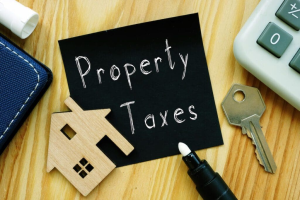Property investment tips in the UK often feels like a game reserved for the super-rich or those with insider knowledge. However, for everyday Brits looking to build long-term wealth, generate passive income, or secure their financial future, the world of bricks and mortar remains one of the most reliable and tangible paths. You don’t need to be a seasoned financier to succeed, but you do need a clear strategy, diligent research, and a pragmatic approach.
This comprehensive guide distills the complex world of property into 20 actionable, no-nonsense tips. Whether you’re considering your first buy-to-let or looking to expand an existing portfolio, these insights will equip you with the essential knowledge to navigate the market effectively and avoid common pitfalls.
Part 1: Laying the Foundation – Planning & Strategy
Before you even begin to browse listings, a solid plan is your most valuable asset. Haphazard investing leads to haphazard returns.
1. Start With a Purpose, Not a Property
This is perhaps the most crucial tip. Don’t fall in love with a property before you’ve defined why you’re investing. Are you aiming for:
- Long-term capital growth for retirement?
- Passive income to supplement your salary or replace it?
- Quick profits through renovation and resale (“flipping”)?
- A legacy to pass to your children?
Your ultimate goal dictates everything: the type of property, its location, your funding strategy, and even your exit plan. Without a clear purpose, you’ll struggle to make coherent investment decisions.
2. Think in Decades, Not Months
Property investment is rarely a get-rich-quick scheme. While market fluctuations can offer short-term gains, true wealth in property is built over time. Embrace a long-term perspective, focusing on sustained growth and consistent income over 10, 15, or even 20+ years. This mindset helps you weather market downturns and avoid panicking over temporary dips.
3. Choose a Strategy and Stick to It (Initially)
There are several established property investment strategies, each with different risk/reward profiles and demands on your time:
a) Buy-to-Let (BTL)
- Focus: Rental income and long-term capital appreciation.
- Ideal for: Those seeking a relatively stable, passive income stream.
- Considerations: Requires a substantial deposit (typically 25%), ongoing management, and adherence to landlord regulations.
b) Houses in Multiple Occupation (HMOs)
- Focus: Maximising rental yield by renting individual rooms.
- Ideal for: Investors seeking higher returns and willing to undertake more intensive management.
- Considerations: Stricter licensing, more complex management, higher turnover of tenants, and specific local planning rules.
c) “Flipping” (Buy-to-Sell)
- Focus: Buying an undervalued property, adding significant value through refurbishment, and selling quickly for a profit.
- Ideal for: Those with renovation experience, access to development finance, and a good understanding of local market demand.
- Considerations: Higher risk, reliant on market conditions, and can be capital gains tax-intensive.
Pick one that aligns with your goals and resources, master it, and then consider diversifying.
4. Know Your Target Tenant Inside Out
Before buying, visualise your ideal tenant. Are they:
- Students? (e.g., near universities, requiring furnished rooms)
- Young professionals? (e.g., near city centres, good transport, modern amenities)
- Families? (e.g., near good schools, parks, stable neighbourhoods)
- Older tenants? (e.g., bungalows, easy access to amenities)
Your target tenant directly influences the type of property, its layout, necessary amenities, and the best location.
5. Location is Paramount – Always!
This cliché is a cliché for a reason. Location is, was, and always will be the most critical factor. Research areas with:
- Strong rental demand: Look at local letting agent data.
- Solid local economy: Job growth attracts residents.
- Good transport links: Proximity to train stations, motorways, and bus routes.
- Reputable schools and amenities: Crucial for families.
- Low crime rates and desirable lifestyle factors.
Before committing, “walk the street.” Spend time in the neighbourhood at different times of day and week. Does it feel safe? Is it noisy? What are the local shops like? Your feet on the ground will tell you more than any online search.
Part 2: The Financial & Legal Minefield – Navigating the Essentials
Property investment involves significant capital and legal obligations. Understanding these aspects is non-negotiable.
6. Know Your Budget Down to the Penny – All Costs
Your initial budget isn’t just the property price. It must include:
- Deposit: Typically for a BTL mortgage, potentially more.
- Stamp Duty Land Tax (SDLT): An additional surcharge on investment properties. This can be a significant cost.
- Legal Fees: Conveyancing solicitors.
- Mortgage Arrangement Fees: Can be hundreds or thousands of pounds.
- Survey Fees: Essential for due diligence.
- Renovation/Refurbishment Costs: Even minor work adds up.
- Furnishing Costs (if applicable): For HMOs or student lets.
- Emergency Fund: Crucial for voids and unexpected repairs.
Underestimating costs is a common mistake that can decimate your returns.
7. Speak to a Specialist Mortgage Broker Early
Don’t use a standard high-street broker for BTL. Specialist mortgage brokers understand the unique criteria for investment property, including:
- Rental income stress tests: Mortgages are often assessed on projected rental income.
- Portfolio lending: For multiple properties.
- Limited company structures: If you’re buying via a company.
They can save you time, money, and help you find the best rates you qualify for.
8. Run the Numbers Like a Business – Cash Flow is King
Your investment property is a business. Financial analysis is paramount.
- Rental Yield: (Annual Rent / Property Value) . Aim for at least – gross yield as a starting point.
- Cash Flow: Ensure your rental income comfortably exceeds all your outgoings:
- Mortgage payments
- Insurance
- Maintenance allowance (e.g., of rent)
- Management fees (if using an agent)
- Ground rent/service charges (for leasehold)
- Licensing fees (for HMOs)
- Allowance for void periods
- Tax on rental profit
A property that doesn’t generate positive cash flow month-on-month is a liability, not an asset, unless your strategy is purely long-term capital growth and you can cover the shortfall.
9. Factor in an Emergency Fund for Voids & Repairs
No property investment is immune to problems. Boilers break, tenants move out unexpectedly, and roofs leak. Maintain an emergency fund equivalent to – months of your property’s total outgoings (including mortgage). This prevents panic, debt, and the need to sell at an inopportune moment.
10. Understand Your Tax Obligations – Get an Accountant!
Rental income is subject to Income Tax. Capital gains are subject to Capital Gains Tax when you sell.
- Income Tax: You pay tax on your rental profit (rent minus allowable expenses). Since 2020, full mortgage interest relief is no longer available; it’s now a basic rate tax credit.
- SDLT: Remember the surcharge on purchases.
- Capital Gains Tax (CGT): Applicable on the profit when you sell, after accounting for purchase/selling costs and improvements.
This is complex. Employ a specialist property accountant from day one. They will ensure you claim all eligible expenses, structure your affairs efficiently, and avoid costly mistakes with HMRC.
11. Get Specialist Landlord Insurance
Your standard home insurance is inadequate for a rental property. You need specialist landlord insurance that covers:
- Loss of rent (due to tenant default or property damage).
- Malicious damage by tenants.
- Property owner’s liability.
- Contents insurance for any items you provide.
Shop around for the best cover.
12. Be Very Cautious With Leasehold Properties
While many flats are leasehold, understand the implications:
- Service Charges: Can be high and rise unpredictably.
- Ground Rent: Can also rise, sometimes significantly (check for doubling clauses).
- Restrictions: You may need freeholder permission for alterations or even sub-letting.
- Lease Length: A short lease (under 80 years) can make a property hard to mortgage and expensive to extend.
Always instruct your solicitor to thoroughly check the lease terms. Freehold is generally preferred where possible, especially for houses.
13. Use a Specialist Property Solicitor/Conveyancer
The legal process for investment property can be complex. Don’t just use the cheapest online conveyancer. Choose a solicitor with:
- Specific experience in BTL or HMO transactions.
- Knowledge of local planning and licensing requirements.
- A track record of efficient property transactions.

They will be invaluable in identifying red flags, reviewing contracts, and ensuring a smooth purchase.
Part 3: The Practicalities – Purchase & Property Management
Once the planning and finances are in place, focus on smart buying and efficient management.
14. Do Thorough Due Diligence (The “Boring” Checks)
Never skip a proper survey.
- Get a RICS HomeBuyer Report or a Building Survey: These will uncover potential structural issues, damp, or major repair needs that a basic mortgage valuation won’t. A cheap valuation might save you a few hundred pounds now but cost you tens of thousands later.
- Check EWS1 forms for cladding: Essential for flats in multi-storey buildings.
- Review all legal paperwork: Ask your solicitor to flag anything unusual or restrictive.
15. Try to Buy Below Market Value (BMV)
Buying BMV is instant equity and provides a buffer against market downturns. How to find BMV properties:
- Motivated Sellers: Look for properties that have been on the market for a long time, probate sales, or divorces where a quick sale is paramount.
- Properties Needing Light Refurbishment: Many buyers overlook properties that need cosmetic work. If you can add value cheaply, you create equity.
- Networking: Build relationships with local estate agents and property sourcers who might have off-market deals.
16. Prioritise Cash Flow Over Rapid Capital Growth
While capital growth is a bonus, for most BTL investors, positive cash flow is the bedrock. Relying solely on future price increases is speculative. Ensure your rental income reliably covers all expenses and leaves a buffer. If property prices stagnate or fall, your cash flow is what keeps your investment afloat.
17. Choose Tenants With Care – They’re Your Business Partners
A bad tenant can be catastrophic for your investment. They can cause damage, fall into arrears, and be difficult to evict.
- Professional Referencing: Always use a reputable tenant referencing service. They check credit history, employment, income, and previous landlord references.
- Guarantors: For students or those with limited income, insist on a reliable guarantor.
- Meet Them: Trust your gut feeling, but always back it up with hard data.
18. Stay on Top of Regulation and Safety – Landlord Responsibilities
Being a landlord comes with significant legal responsibilities. Ignorance is no defence.
- Gas Safety Certificate (GSC): Annual check by a Gas Safe registered engineer.
- Electrical Installation Condition Report (EICR): Every 5 years by a qualified electrician.
- Energy Performance Certificate (EPC): Valid for 10 years, minimum rating ‘E’ (soon to be ‘C’ for new tenancies).
- Smoke and Carbon Monoxide Alarms: Mandatory installation and testing.
- Right to Rent Checks: Verify tenants have the legal right to rent in the UK.
- Deposit Protection: Register tenant deposits in a government-backed scheme.
- HMO Licensing: If applicable, obtain the correct licence from your local council.
19. Consider Using a Letting Agent (But Choose Wisely)
If you live far from your property, have limited time, or are daunted by the regulatory burden, a good letting agent can be invaluable.
- Services: They can handle everything from finding tenants and managing repairs to collecting rent and ensuring compliance.
- Fees: Typically – of the monthly rent for full management.
- Due Diligence: Interview several agents, check their fees, ask for landlord references, and ensure they are members of a redress scheme (e.g., The Property Ombudsman). A bad agent is worse than no agent.
20. Plan Your Exit Strategy Before You Buy
How will you eventually divest this asset? Knowing your end game helps shape your current strategy.
- Sell to an owner-occupier? (Focus on broad market appeal).
- Sell to another investor? (Focus on strong yield).
- Gift to family? (Consider inheritance tax implications).
- Refinance and release equity?
Having a clear exit strategy ensures your investment aligns with your long-term financial goals and isn’t just a haphazard acquisition.
Your Journey to Property Success
Property investment is a marathon, not a sprint. It demands research, patience, and a willingness to learn. By adhering to these 20 no-nonsense tips, everyday Brits can demystify the process, build a robust portfolio, and secure a brighter financial future through smart, strategic property ownership. Start with a solid plan, understand the numbers, manage your risks, and remember that consistent, diligent effort will yield the greatest rewards.
Frequently Asked Questions (FAQs)
1. Do I need a large deposit for a buy-to-let property in the UK?
Yes, typically you will need a minimum deposit of of the property’s value for a buy-to-let mortgage, though some lenders may require more depending on your circumstances and the property type.
2. What is the difference between rental yield and cash flow?
Rental yield is a percentage measure of the annual rent relative to the property’s value (or purchase price). Cash flow is the actual money left in your pocket each month after all expenses (mortgage, insurance, maintenance, agent fees, etc.) are paid from the rental income. Positive cash flow is crucial for a sustainable investment.
3. What taxes do I need to pay as a landlord in the UK?
You’ll pay Stamp Duty Land Tax (SDLT) when you buy (with an additional surcharge for investment properties). You’ll pay Income Tax on your rental profits (rent minus allowable expenses). When you sell, you may pay Capital Gains Tax (CGT) on any profit made. It’s essential to use a specialist property accountant.
4. Is it better to self-manage my rental property or use a letting agent?
This depends on your time, location, and expertise. Self-management saves agent fees but requires significant time for maintenance, tenant issues, and staying compliant with regulations. A letting agent handles these tasks but costs around – of your monthly rent. If you live far from the property or are new to landlording, an agent can be a wise investment.
5. What are the key safety certificates I need as a landlord?
You must have a valid Gas Safety Certificate (GSC) annually, an Electrical Installation Condition Report (EICR) every 5 years, and an Energy Performance Certificate (EPC). You also need to ensure smoke alarms are fitted on each storey and a carbon monoxide alarm in rooms with a solid fuel burning appliance.
6. What should I look for to identify a good investment location?
Look for areas with strong tenant demand (check local letting agents), good transport links (train, bus, motorways), proximity to employment hubs, good schools (for family lets), local amenities, and signs of regeneration or investment. Always visit the area to get a feel for it.
























